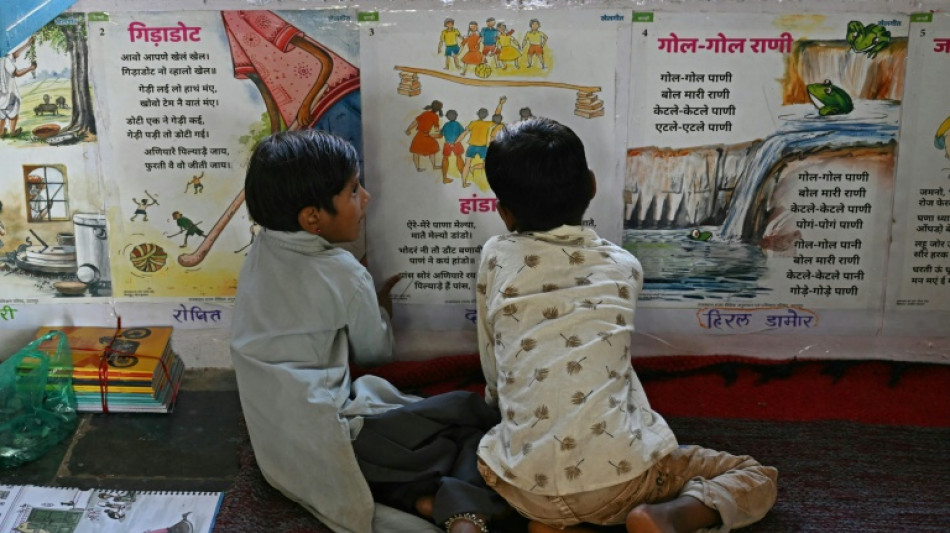
-
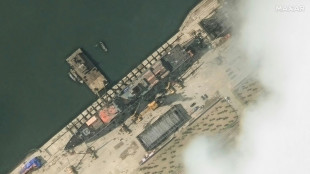 'Serious' accident at North Korea warship launch: state media
'Serious' accident at North Korea warship launch: state media
-
Massive floods strand over 50,000 in eastern Australia

-
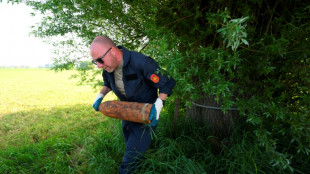 Deminers comb Belgian countryside for remnants of Great War
Deminers comb Belgian countryside for remnants of Great War
-
Somalia climate shocks and aid cuts create perfect storm
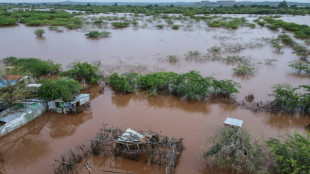
-
 Ads pressured to evolve as AI changes Google search
Ads pressured to evolve as AI changes Google search
-
Merz to visit Lithuania as Germany helps bolster NATO's eastern flank

-
 Two Israeli embassy staff shot dead outside Jewish museum in Washington
Two Israeli embassy staff shot dead outside Jewish museum in Washington
-
Two Israeli staff shot dead outside Jewish museum in Washington

-
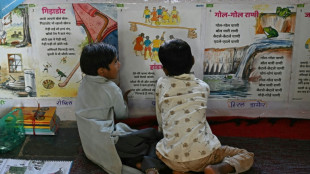 India's mother tongue teaching spells reading success
India's mother tongue teaching spells reading success
-
German far-right voters don't deserve empathy, says director Akin

-
 EU ready to tax Russian fertilisers as early as July
EU ready to tax Russian fertilisers as early as July
-
Pacers roar back to stun Knicks in Eastern Conference finals opener

-
 'Our legend': Australia football hails Europa-winning Postecoglou
'Our legend': Australia football hails Europa-winning Postecoglou
-
Trier weaves his Cannes magic again with family affair

-
 'Mad' rise takes new poster-boy Pollock to Champions Cup final
'Mad' rise takes new poster-boy Pollock to Champions Cup final
-
Caldentey's Arsenal hoping to break Barca Champions League hegemony

-
 Queen of clay Swiatek's reign under threat at Roland Garros
Queen of clay Swiatek's reign under threat at Roland Garros
-
Djokovic battling age, form struggles in record quest

-
 Napoli on brink of title glory in Serie A finale
Napoli on brink of title glory in Serie A finale
-
Young Mongolians demand PM resign over corruption claims

-
 Verstappen heads 'home' to face McLaren challenge
Verstappen heads 'home' to face McLaren challenge
-
Asian equities track Wall St sell-off as US deficit fears grow

-
 'I'm back': Pacquiao confirms coming out of retirement at 46
'I'm back': Pacquiao confirms coming out of retirement at 46
-
G7 finance chiefs seek unity as Canada talks near end

-
 UN says around 90 aid trucks 'dispatched' into Gaza
UN says around 90 aid trucks 'dispatched' into Gaza
-
War takes centre stage as Lebanon's theatres are back

-
 One dead, 50,000 stranded in eastern Australia floods
One dead, 50,000 stranded in eastern Australia floods
-
Vonn and Shiffrin glad to race Olympics on familiar terrain

-
 Trump says mulling privatizing Fannie Mae and Freddie Mac
Trump says mulling privatizing Fannie Mae and Freddie Mac
-
Relief Therapeutics Receives FDA Rare Pediatric Disease Designation for RLF-TD011

-
 With or without Postecoglou, Spurs can 'break the cycle'
With or without Postecoglou, Spurs can 'break the cycle'
-
Shai Gilgeous-Alexander wins NBA Most Valuable Player award

-
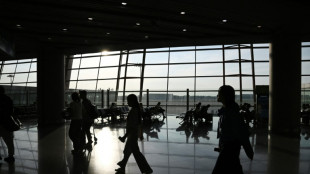 Consumer groups want airlines to pay for baggage fees 'distress'
Consumer groups want airlines to pay for baggage fees 'distress'
-
Amorim says will quit with no payoff if Man Utd want new boss

-
 Deference and disputes: how leaders get on with Trump
Deference and disputes: how leaders get on with Trump
-
Postecoglou hungry to build on Spurs' Europa League triumph despite exit talk

-
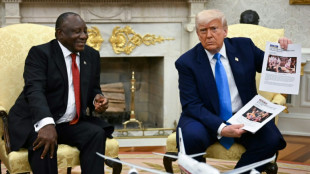 The Ambush Office: Trump's Oval becomes test of nerve for world leaders
The Ambush Office: Trump's Oval becomes test of nerve for world leaders
-
'Dream comes true' for Spurs captain Son

-
 Amorim says will go with no payoff if Man Utd no longer want him
Amorim says will go with no payoff if Man Utd no longer want him
-
Postecoglou wants to build on Spurs' Europa League triumph despite exit talk

-
 Man Utd must make changes after 'unacceptable' season, says Shaw
Man Utd must make changes after 'unacceptable' season, says Shaw
-
Man Utd face harsh truths after losing must-win Europa League final

-
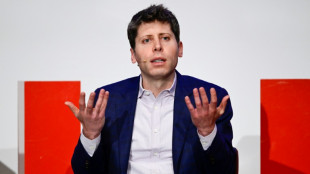 Apple design legend Jony Ive joins OpenAI
Apple design legend Jony Ive joins OpenAI
-
Outrage at Israeli shots as diplomats tour West Bank

-
 G7 finance chiefs hold talks under strain of Trump tariffs
G7 finance chiefs hold talks under strain of Trump tariffs
-
Spurs edge Man Utd to win Europa League and end trophy drought

-
 Irish rapper charged over Hezbollah flag at London concert: police
Irish rapper charged over Hezbollah flag at London concert: police
-
Metz held by Reims in Ligue 1 play-off first leg

-
 Outrage after Israelis fire 'warning shots' as diplomats tour West Bank
Outrage after Israelis fire 'warning shots' as diplomats tour West Bank
-
Mexican cartel turf war forces evacuation of exotic animals
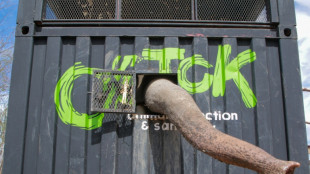

India's mother tongue teaching spells reading success
Sitting together on the classroom floor in Kalyanpur in northwest India, a dozen children aged five and six are trying to identify Hindi words beginning with the "p" sound.
After a spontaneous "papa", the children unanimously agree on "papaya" -- spelt out at the top of their lungs by the entire class.
But for these children, born into an Indigenous tribe in Rajasthan state, learning to read in a language neither they nor their parents speak is a challenge.
To break this pattern, authorities launched a programme in two Rajasthan districts to teach students to read in their mother tongue.
Months after the experiment began, there is progress.
"I used Hindi language with the children, but I could see that they were not responding well," said their teacher, Jashoda Khokariya.
"They were scared, and were not able to answer my questions," she added.
"Now, it's a miracle -- there is not a single child who is not able to respond."
Indian school enrolment rates are high -- but performance is much lower.
One key problem in the world's most populous country, where 1.4 billion people speak a mosaic of over a hundred languages, is that primary school teaching is often in a language the children do not understand.
- 'Multilingual society' -
At the age of eight, only 39 percent of Indian students reach the required reading level.
At 15, the situation is even worse. The rate drops to 10 percent.
Poverty, early marriage and poor teacher training are all to blame -- but language plays a part too.
"We have a multilingual society; this needs to be accounted for when children come to school," said Saadhna Panday, from the UN children's agency (UNICEF).
"Several studies have demonstrated that children learn best in the early years in their mother tongue."
But this is rarely the case.
In many Indian states, students are taught in English and Hindi, of which families may have little knowledge.
Since 2020, the national education ministry has said that primary education in students' mother tongue is a priority.
Rajasthan ticked all the boxes to host a pilot project.
A survey in nine of its rural districts revealed the magnitude of the task: 250,000 primary school students speaking 31 languages.
Three-quarters of them are far from understanding -- let alone speaking -- Hindi.
- 'Many obstacles' -
The programme faces multiple hurdles -- one of these being that teachers are not trained to use the children's language for formal teaching in the classroom.
"There were many obstacles," said Shweta Fageria, director of Rajasthan's State Council of Educational Research and Training centre.
"We first created dictionaries by using the local dialect," she added, before making them trilingual with Hindi and English.
At the Kuwadi Nichala Fala School, a spartan concrete building on a dusty hill, 13 first graders -- aged around five to six -- leaf through the dictionary every schoolday.
It is a far cry from the other side of India's education system -- the ultramodern technology institutes whose prize pupils are snapped up by Californian tech giants.
In the sweltering heat, the top student deciphers a few lines.
He is still far from mastering reading in his native Wagdi -- a language with more than three million speakers, according to the last census.
But he is making great progress, like all the students in his class, according to his teacher.
"They can now read words," Lakshmi Kumari Patel said.
"At this age, it takes time for a child to be confident, to actively participate," she added. "Now they are more expressive... engaging in conversations without hesitation."
- 'Abysmal' schooling -
Parents are now more involved too.
Since they speak the language being taught, it's up to them to support their children by having them read and telling them stories.
Lalita Parmar, 62, understands the benefits that her grandchildren's education can bring.
"They will be able to get a job, then they will earn and eat," she said. "If one gets a job, the whole family will benefit."
The state government, UNICEF and a local partner have given themselves two years to succeed and, if necessary, to expand.
"Through the programme in Rajasthan, we have seen an improvement in children's attendance at school... teachers are more structured, more planned in using the learning materials available in the classrooms, parents are getting more involved in schools," said Panday from UNICEF.
"We expect children to have better learning outcomes."
The future of India and its economy depends on it, writes economist Ashoka Mody in his recent book, "India is Broken."
"The quality of school education in India remains abysmal," Mody wrote, noting how competitors were progressing.
"India's attempt to make progress on the cheap by unconscionably delaying these investments in education, health and cities has taken its toll."
O.M.Souza--AMWN